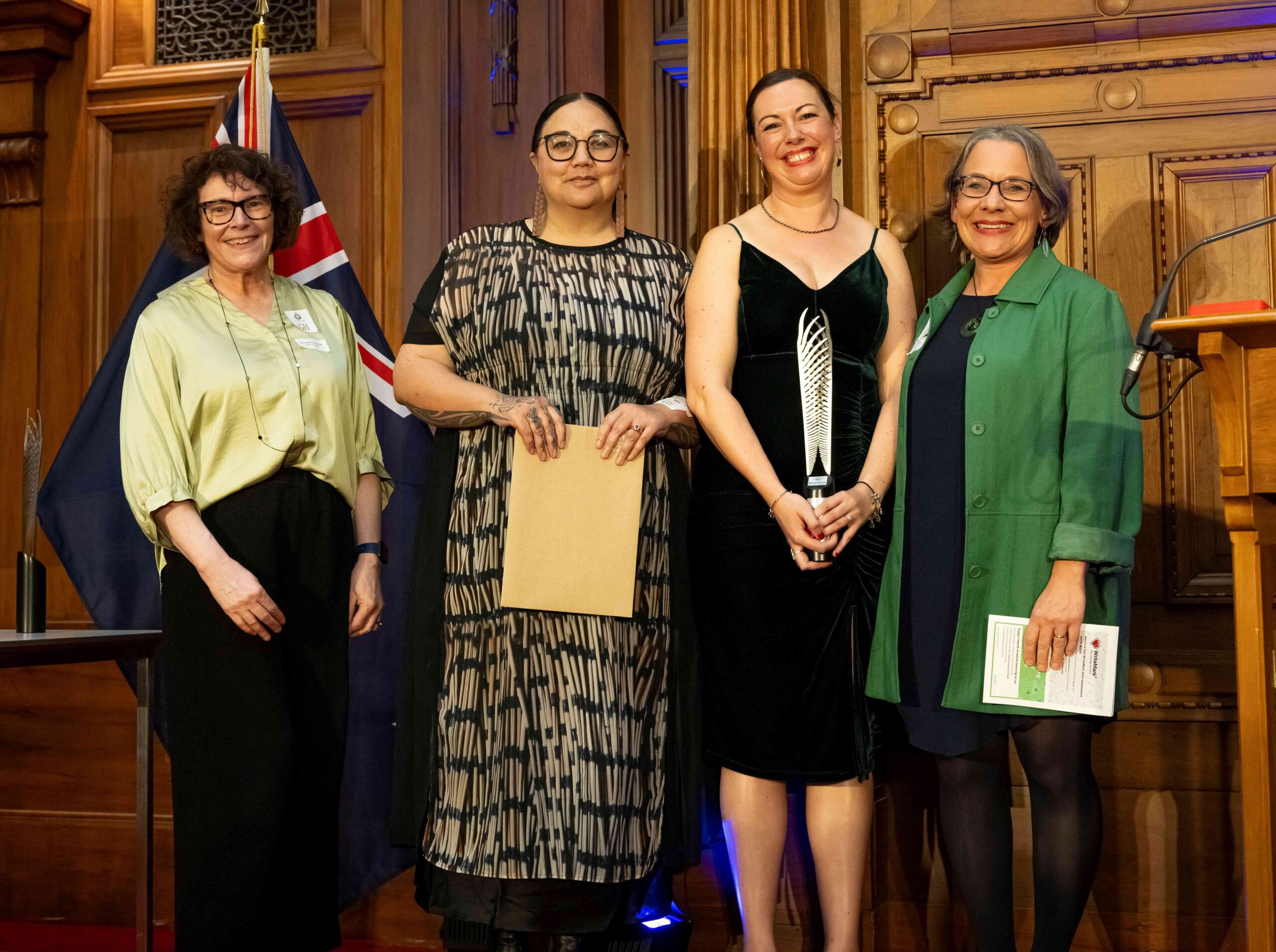Talking Trouble Aotearoa NZ team

Winning team Talking Trouble Aotearoa NZ (right) receive their award from WriteMark representative (left) | Anne-Marie Chisnall, Zanna Richardson, Tracy Karanui-Golf, and Sally Kedge
The team’s commitment to plain language comes through loud and clear as a core value behind how they do their work and why they do it.
We’re so impressed with their efforts to understand the real challenges and barriers that complex language creates for everyday people in justice settings. They use that information to shape their work, but they also make sure practitioners and policymakers hear and understand it too.
The feedback they’ve received showcases their strong influence and the motivation they’ve sparked in others. They’re creating an awesome plain language culture, and it’s clear they’re innovating and driving meaningful changes to the communication standards in their industry. We love that they’re sharing their passion and knowledge widely. They’re making plain language easier, more accessible, and achievable for many.
Through plain language and clear communication, they’re empowering people to become participants, not outsiders, in processes that affect their lives. Congratulations, Talking Trouble Aotearoa NZ!
We are delighted to have had the opportunity, through our Plain Language Awards application, of highlighting the importance of communication accessibility. How documents are written and how people talk can make a huge difference in others’ lives. We hope our application has explained why accessible communication is important, and demonstrated ways that communication can be improved.
We are a team of speech-language therapists. All our work at Talking Trouble Aotearoa NZ is about making communication easier for children, young people, and adults. We aim to make spoken language and written language easier to understand, and we help people have their say about the things that are important to them.
The stakes are high in the contexts where our team works. We work in courts, prisons, care and protection settings, schools, health settings, and police contexts. The communication involved is often confusing for many people: for example, the words that are used, the processes that need to be understood, and the documents that need to be read. We are trying to change the communication in these contexts so it makes sense to people. Our work is about making sure people can meaningfully take part in whatever it is they need to do in their lives. We work with individuals who may need to deal with professionals and the law for a wide range of reasons. Our role is to make sure that communication (spoken and written) works well. That involves us working with professionals like judges, lawyers, police officers, and social workers to make sure people can understand what is going on and express their views.
We also deliver training and develop resources to bring about change across whole systems, aiming to make communication easier for everyone. We are passionate about this work and want to make sure that everyone knows about our profession of speech-language therapy — it is an incredible career option. We want to ensure that the expertise of a speech-language therapist is available to all who may need us.
Sally Kedge
Director/Coordinator
Talking Trouble Aotearoa NZ